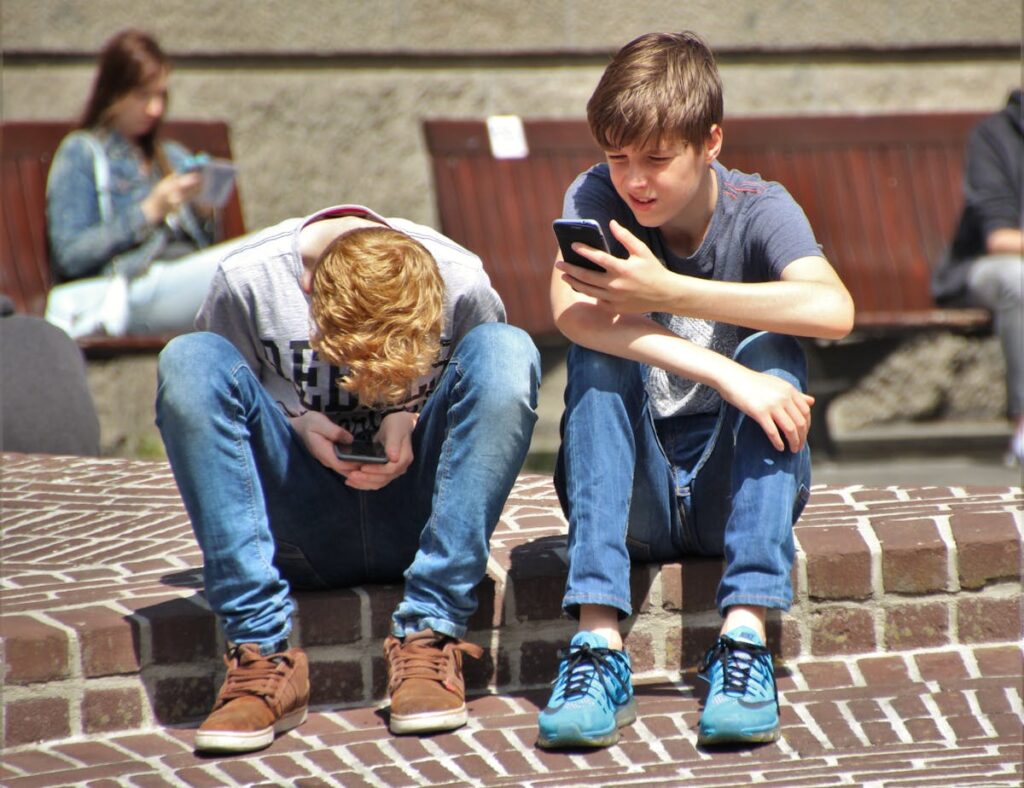Social media. It’s the friend in your pocket you didn’t exactly invite over… but there they are, every time you look. A quick scroll on TikTok, one harmless peek at Instagram, a just one video dive into YouTube, and somehow, it’s dark outside. If you’re part of Gen Z, this isn’t just a random scenario; it’s your everyday life and one of the most relatable examples of the effects of social media on Gen Z. McKinsey & Company reports that these platforms influence Gen Z’s mental health in complex ways
Now, some people (looking at you, worried parents) think the easiest fix is to keep Gen Z away from social media completely. Delete the apps. Cut the cord. Poof, problem solved, right? Well… not exactly. This generation uses these platforms to share their interests, develop new skills, and build friendships. Finding a way to make it work for you rather than against you is the key, not outright outlawing it.
That’s why we’re talking about the effects of social media on Gen Z and, more importantly, how to make those effects work in your favour.
The Double-Edged Sword: Understanding the Effects of Social Media on Gen Z
The truth is that social media can be both a lifeline and a minefield. It connects you to the world when used properly. Use it wrong (or just too much), and it can wreck your focus, your mood, even your sleep.
The Not-So-Great Side
You know that thing where you’re lying in bed, just checking one last notification… and suddenly it’s 2 a.m.? Yeah. Social media can completely mess up sleep patterns. It’s the overstimulation of the mind, not just the blue light.
And then there’s the comparison trap. Everyone’s life online looks perfect. Perfect skin. Perfect vacations. Perfect avocado toast. The problem? It’s all curated. For a lot of Gen Z, those highlight reels start to feel like reality, and that can tank your self-esteem fast.
Anxiety and FOMO are inevitable when you add in the need to be up to date with every trend, viral sound, and inside joke. ScienceDirect found a clear link between social media use, stress, and fear of missing out. (Fear of Missing Out. Which, ironically, you only get from… being online.)
The Bright Side
But here’s the twist: the same platforms that can make you feel drained can also make you feel inspired.Gen Z now has a voice on a global scale because to social media. It has inspired movements, spawned professions, and brought together individuals who otherwise would not have crossed paths. One of the underappreciated consequences of social media on Generation Z is that, when utilised purposefully, it may really empower them.
Why Completely Keeping Gen Z Away from Social Media Isn’t the Answer
Banning social media might sound appealing in theory, but it ignores one big fact: it’s woven into Gen Z’s daily life. It’s how people communicate, learn, share, and even work, not just something they do.
Think about it:
- Many friendships literally start online.
- Jobs and opportunities get posted on social media before anywhere else.
- Pop culture, news, and trends all live there now.
Removing it entirely erases both the good and bad effects of social media on Gen Z. The smarter move is to guide them in using it well.

The Real Benefits of Social Media for Gen Z
Let’s give credit where it’s due. When used intentionally, social media can do a lot of good.
1. Curating Your Digital Space
Follow people who inspire you. Unfollow the ones who make you feel less than. It’s that simple. Gen Z can make their feeds places of motivation, humour, and positivity.
2. Learning Pretty Much Anything
From finance tips to fitness routines to DIY hacks, if you can think of it, there’s probably a tutorial for it. Social media has made learning insanely accessible.
3. Finding Your Tribe
There is a section of the internet dedicated to your interests, whether they are sustainable fashion, anime fan theories, or rare book collecting. And you feel seen when you come across others who are as passionate as you are. This is one of the positive effects of social media on Gen Z it helps build communities across the globe. Just like in our Weight Gaining Exercises Guide community, where fitness lovers connect and share tips
4. Launching Careers and Creative Projects
Some of today’s most successful artists, musicians, and entrepreneurs started by posting their work online. Social platforms can be the stage where hidden talent meets opportunity.
Good Social Media Practices for Generation Z (and, to be honest, the rest of us)
At this point, we move from saying, This is a problem, to saying, Here’s how we fix it.
- Set actual limits. Put timers on your apps instead of just saying, I’ll scroll less.
- Create phone-free zones. The dinner table. Your bedroom after 10 p.m. The shower (please).
- Swap scrolling for something better. Read. Sketch. Go outside. Text a friend to set up a face-to-face meeting. Or try some Yoga Exercises for Weight Loss to boost both mind and body.
- Model what you preach. If you’re telling younger siblings or students to spend less time online while you’re glued to your phone… yeah, that’s not going to work.
Good habits can flip the effects of social media on Gen Z from harmful to helpful.
The Effects of Social Media on Gen Z’s Mental Health
Here’s where it gets real. Mental health and Gen Z have a complex relationship. You can’t really talk about the effects of social media on Gen Z without touching on mental health, and honestly, it’s messy. It’s not just good or bad. Spend too long scrolling through flawless selfies, dream vacations, and my life is perfect posts, and yeah… it can mess with your head. Insecurity creeps in. Anxiety starts whispering in the background. Even when you’re online with lots of people, loneliness can still strike.
But, and this is the weird part, those same apps can also be lifelines. You come across a post that truly resonates with you. You find a support group you didn’t know you needed. You learn a coping trick that actually works for you. (maybe even something like the advice in our Why Mental Health Deserves the Spotlight article). It’s messy. It’s full of contradictions. And honestly? That’s just how life works online. The London School of Economics even emphasizes the importance of media literacy to help Gen Z navigate these contradictions better

